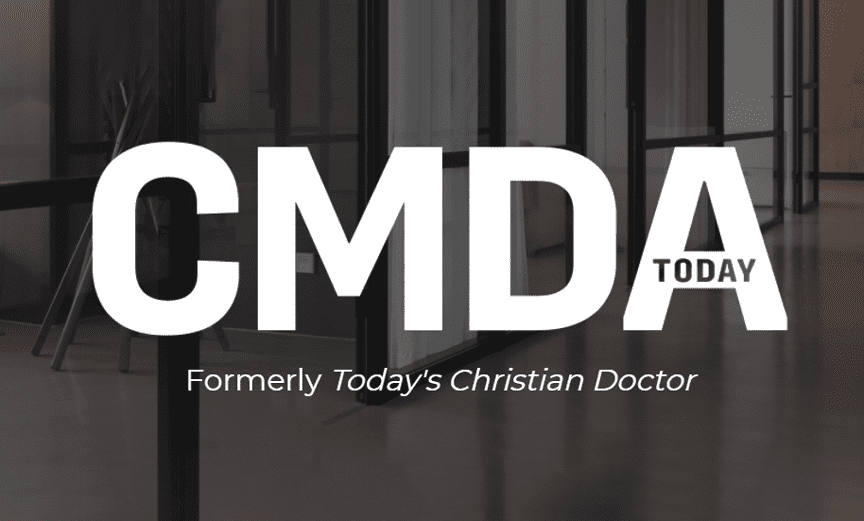
Feed My Sheep
As Christians in healthcare, we are called to take our faith into the workplace, whether it be in a clinic, in a hospital or in academia. My journey in medicine led me from the clinic into academia. I actually consider myself an accidental academician who never meant to end up in charge of training a portion of the physician assistant workforce. This, however, is exactly why I am writing this story, to encourage my colleagues and help them understand who the sheep are, why they need feeding, how to feed them and when to stop feeding them.
by Jill R. Mattingly, DHSc, MMSc, PA-C
“Feed my sheep.”
– John 21:17b, ESV
I took in a sharp breath reading these words. Three words packed with meaning, promise and responsibility. Words I would hang all of my hope on for the next leg of my journey.
As Christians in healthcare, we are called to take our faith into the workplace, whether it be in a clinic, in a hospital or in academia. My journey in medicine led me from the clinic into academia. I actually consider myself an accidental academician who never meant to end up in charge of training a portion of the physician assistant workforce. This, however, is exactly why I am writing this story, to encourage my colleagues and help them understand who the sheep are, why they need feeding, how to feed them and when to stop feeding them.
In November 2016, I had just stepped off the plane at Atlanta’s Hartsfield Jackson International Airport after a 17-hour flight home to the U.S. from Johannesburg, South Africa. What had preceded this long flight was a two-week journey to Antsirabe, Madagascar with two physician assistant students to develop a clinical rotation. Traveling with medical mission teams to this remote site was one of the highlights of my life, as we had the opportunity to serve several rural villages during the first week of the trip. I left my students in Madagascar with an adjunct professor to work with the hospital surgical team for three more weeks. On the flight home, I was concocting an escape plan from my current position due to my feeling that others were planning to do the same, and I did not want to be the last one left holding the bag. Several of my peers had sailed for calmer waters in the face of a rigorous accreditation year and other difficulties. Our team had whittled down over the last year, and our leader was teetering as well.
My cell phone was beeping for my attention as I moved through the terminal after landing in Atlanta. The text was ominous. The leader who had been teetering had tottered. She was leaving at the end of the year. I was not too shocked, but when I started to project my concerns over the next eight months, I became distressed. If a new leader was not installed immediately, this could be a sinking ship scenario, and I wanted out. Then I saw the faces of the students, one by one these people spilled out in front of me in a lucid dream. This sticking point would not allow me to slide out the door so easily.
A week later, I am driving to work continuing to pray about my next steps and my future. I turned onto a residential road that led to the university, and for the second time in my life felt as if someone spoke to me in an audible voice. The voice said, “Tell the dean that you will take the director position.” I froze at that moment, gripping the steering wheel. This is not what I wanted to hear. The next six months preparing for accreditation in June and filling the holes left by departing employees meant endless hours of work and no promise of success.
I stood at my desk that morning sifting through my thoughts, “Did I actually hear that, or was that just me throwing a wrench into my processing?” I called my sister and said, “I think I just heard the Lord tell me to become the director. Do you think…,” and before I could say another word, she said, “ABSOLUTELY!” No discussion, just emphatic affirmative. After hanging up, I stood there thinking that I simply could not take that as the end of the discussion. What I did next is not a move I recommend for big decisions, but I needed a miraculous intervention to believe. I took my Bible off the desk and proceeded to close my eyes. I opened the Bible to a random page and blindly hit the page with my index finger. I opened my eyes and read the words under my finger. It said simply, “Feed my sheep.”
I immediately sat down and wrote the dean an email letting her know I was willing to take the interim director position and all that entailed. She responded enthusiastically and graciously. However, she told me it would not be interim; instead, it would be a permanent position as director of the physician assistant program. Over the next few weeks, a whirlwind of activity occurred as I prepared to take the helm. One thing kept playing in my head: “Feed my sheep, feed my sheep, feed my sheep.” I was desperate to understand everything those words meant.
I searched the Scripture for stories that echoed the story of Jesus telling Peter to feed His sheep. Stories about sheep, about caring for sheep and about protecting the sheep. Psalm 23 creates some of the most prolific imagery in Scripture of shepherding sheep. Most of those stories and images carried me for the year, but they never crystalized anything for me personally. My roles and responsibilities as a physician assistant program director give me direct access to hundreds of brilliant, passionate people, many with strong faith and discipleship.
More than a year passed before more light was shed on the “feed my sheep” exhortation.
“So I exhort the elders among you, as a fellow elder and a witness of the sufferings of Christ, as well as a partaker in the glory that is going to be revealed: shepherd the flock of God that is among you, exercising oversight, not under compulsion, but willingly, as God would have you; not for shameful gain, but eagerly; not domineering over those in your charge, but being examples to the flock. And when the chief Shepherd appears, you will receive the unfading crown of glory” (1 Peter 5:1-4, ESV).
The day I read 1 Peter 5 was a turning point in my understanding. At that time, I was preparing to travel with eight of my students to Honduras on an annual Global Health Outreach (GHO) mission trip, and this passage of Scripture changed everything. I started to clearly see the program was not only a place of training incredibly promising medical professionals, but it also had a spiritual benefit for those seeking to grow stronger in their faith. Not every student is looking for a spiritual benefit, even though I know the intensity of the physician assistant training has enhanced numerous prayer lives. I am speaking about those He sends to us to mentor and guide. When we as shepherds stay obedient to the Great Shepherd, these young disciples will be plopped on our doorstep for us to train, in whatever way the Master leads. It may be that we never know the ones we are affecting when we model humility and practice servant leadership. I may not know them, but He does, and He knew I could be the next mentor to feed them for a little while until He moves them to the next place.
As you feed His sheep in your own spheres of influence, I encourage you to follow these three guidelines I learned during my experiences.
- “Exercising oversight, not under compulsion, but willingly, as God would have you” (1 Peter 5:2, ESV). This changes our attitude and reminds us to be the kind of leaders who see the sheep as our highest mission. Their care and training as a ministry is designed to allow them to grow and mature.
- “Not for shameful gain, but eagerly” (1 Peter 5:2b, ESV). Leaders can become bogged down in focusing on enhancing themselves, instead of mentoring those they are leading. When this addicting behavior overtakes the leader, it turns those being led into a commodity for advancement. Love cannot be found in this type of environment, and the structure will weaken, rendering it ineffective.
- Do not domineer over those in your charge, but instead be an example to the flock. Authoritarians relish dominance. The role of student is a vulnerable position with an obvious imbalance of power between student and the professor. Feeding students is the same as serving students. We willingly take on the role as tutor and bring teaching and instruction to those placed in our care. Then we let them go.
The food for the sheep is the Word, the Word we hide in our hearts and live daily. I may not ever preach a single sermon to my students about how He changed a selfish, angry heart to a loving, humble heart; however, I can oversee a spiritual waystation for the disciples growing in faith and works. Whatever your role-clinician, administrator, professor-we all have the ability to feed the sheep He places among us for a season. Whether it is for one student or for 101 students, as disciples we have the Great Shepherd’s example and admonition to…
Get Involved
The Fellowship of Christian Physician Assistants (FCPA) is a specialty section of CMDA. This section provides a support network for the spiritual, professional and personal lives of its members. It also equips and encourages physician assistants to share their faith in all aspects of life and to glorify God in service to others. For more information and to get involved with FCPA, visit www.cmda.org/fpca.
Jill R. Mattingly, DHSc, MMSc, PA-C, is the program director and department chair of Mercer University Physician Assistant Studies in Atlanta, Georgia. She practices family medicine as a volunteer healthcare professional at the Grace Village Refugee Clinic in Clarkston, Georgia. She attended Emory University Physician Assistant Program in Atlanta, Georgia. She received her Doctor of Health Science from Nova Southeastern University in Fort Lauderdale, Florida. She serves on the Global Health Outreach (GHO) Advisory Council as the Physician Assistant Representative. She has served as a board member for CMDA’s Fellowship of Christian Physician Assistants (FCPA). The Georgia Association of Physician Assistants (GAPA) awarded Dr. Mattingly the Humanitarian of the Year Award in 2015 and again in 2016. With her Mercer physician assistant students, Dr. Mattingly has served on medical mission teams in El Serrano, Nicaragua; Jalapa, Nicaragua; Rivas, Nicaragua; Siguatepeque, Honduras; Antsirabe, Madagascar; and Cusco, Peru.










